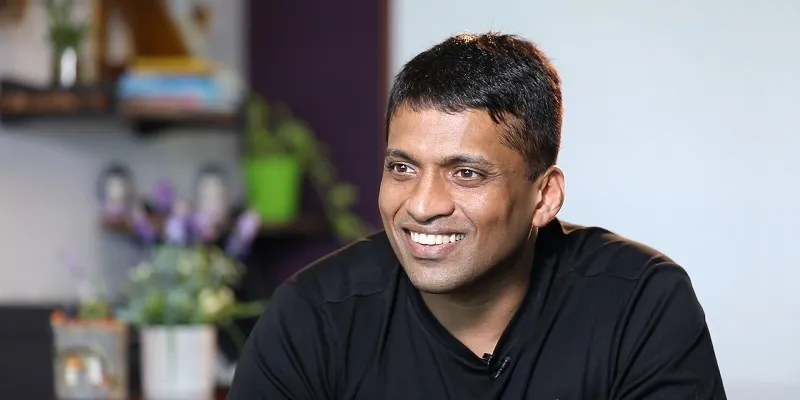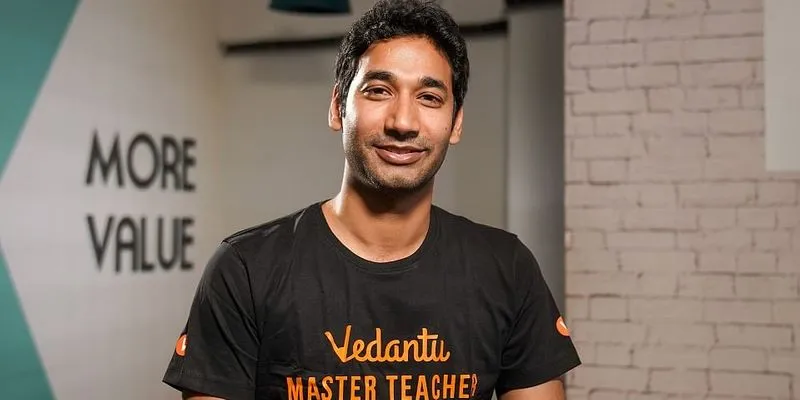BYJU’S, Unacademy grab ~76 pc of edtech funding in 2021; sector raises $1.9B since Jan
Edtech startups have secured $1.9 billion across 80 deals since January, with BYJU’S and Unacademy pocketing a whopping $1.44 billion. We look at the top trends emerging in this dynamic sector.
Edtech’s sensational rise in the pandemic is well-documented by now.
Last year, online education startups in India raised a record $2.2 billion in funding, with the sector becoming the most funded by deal value for the first time.
The momentum has continued in 2021 too.
Between January and August 3, edtech has been among the top three funded sectors in India, raising $1.9 billion across 80 deals, according to YourStory Research.
A majority of these have been equity deals in the B2C learning space, dominated by market leader BYJU’S, which closed four rounds worth $1 billion to become India’s most valuable startup ($16.5 billion); and Unacademy, the only other edtech unicorn whose valuation jumped 70 percent to $3.4 billion after its latest fundraise of $440 million.
In February, Unacademy also raised an undisclosed round from cricket maestro Sachin Tendulkar, who picked up a strategic stake in the firm.
Cumulatively, BYJU’S and Unacademy accounted for a whopping $1.44 billion or nearly 76 percent of the total edtech funding this year.

Edtech is among the top three funded sectors in India in 2021
Sajith Pai, Director, Blume Ventures (Unacademy’s early investor), told YourStory in a prior interaction,
“COVID-19 brought edtech ahead by two to three years. Some early-stage startups got pandemic market-fit. MAUs became DAUs in three months, which is crazy. Capital has come in and capital is chasing the winners. Market leaders are getting a disproportionate premium.”
While the two unicorns continue to hog headlines for their funding (and acquisitions), 2021 has also seen some notable growth-stage (Series B and C rounds), and late-stage deals (Series D and beyond) in edtech.
These include upGrad’s $120 million unspecified round led by Temasek; Classplus’ $65 million Series C round led by Tiger Global, GSV Ventures, and others; Teachmint raising a total of $36.5 million in two successive rounds led by Learn Capital, CM Ventures, and others; Quizizz raising $31.5 million in a Series B round led by Tiger Global; LEAD School raising $30 million a Series D round led by GSV Ventures and WestBridge Capital; and Doubtnut raising a $30.8 million Series B round led by SIG Global, Lupa Systems, and existing investors.
There have been over 65 early-stage deals (Pre-Series A and Series A) too.
YourStory looked at some of the key trends emerging in edtech.

Infographic: Yash Saxena
BYJU’S fundraising spree and global expansion
In June, BYJU’S surpassed Paytm to become India’s most valuable startup. Its valuation more than doubled from $8 billion in January 2020 to $16.5 billion in the present day.
After raising a mammoth $1 billion in equity funding last year, the Bengaluru-based startup went on to close four more rounds of funding between March and June.
These include:
a) $460 million in a Series F round led by MC Global Edtech Investment Holdings, B Capital, Baron Global Advantage Fund, XN Exponent Holding, Arison Holdings, TCDS (India), and TIGA (India)
b) $150 million in an unspecified round led by UBS Group AG
c) $340 million in the ongoing Series F round from UBS Group, Blackstone, Zoom’s Eric Yuan, Abu Dhabi state fund ADQ, and Phoenix Rising - Beacon Holdings
d) $50 million in a Series F round led by India Infoline Finance (IIFL) and Maitri Edtech
These investments come at a time when BYJU’S is looking to expand in six international markets with BYJU’S Future School platform, which it launched in April. The one-on-one learning platform will operate as a sub-brand, and will be available to students in the US, the UK, Brazil, Mexico, Australia, and Indonesia.
Besides funding, BYJU’S has been on an acquisition spree too.

Byju Raveendran, Founder and CEO, BYJU'S
Sector consolidation led by BYJU’S and Unacademy
The edtech market moved towards definite consolidation, with unicorns and market leaders — BYJU’S and Unacademy — continuing with their ‘land grab’ strategy.
Both companies have been shelling out billions cumulatively to acquire online and offline players — either to enter new categories or ramp up existing offerings.
In 2021 alone, BYJU’S has spent over $2 billion in buying companies across verticals, including Aakash Educational Services (test prep) for a mammoth $1 billion, Great Learning (upskilling) for $600 million, Toppr (K-12 live learning) for $150 million, and Epic (digital reading for kids) for $500 million, with the last three deals closing in July.
It also acquired smaller startups like HashLearn (tutoring) and Scholr (doubt-solving) earlier in the year. (This follows the decacorn’s acquisitions of coding startup WhiteHat Jr and virtual simulations platform LabInApp in 2020.)
The AESL acquisition is the largest edtech M&A in the world to date.
The Blackstone Group-backed company has been operational for 33 years, and runs 215 coaching centres across India. It offers test prep services for medical, engineering entrance exams, KVPY, NTSE, Olympiads, and other Foundation Level exams. BYJU’S plans to make continued investments in AESL, and run it as an independent brand.

Unacademy's valuation grew 70 percent after its latest $440 million fundraise
An investor at an early-stage fund told YourStory anonymously,
“BYJU'S grew by selling a low-tech high-content product that isn’t live. Now, it is realising that it doesn’t have 'test prep' muscle as Unacademy, which has acquired horizontal companies in the segment to scale. Or even Vedantu, which has a presence in test prep. That's where the money is. That is why it had to acquire AESL. BYJU’S also has to go from non-live to live learning where Aakash has built a decent product.”
“It will also look to use schools as a distribution platform for its content. Hence Toppr, which is trying to partner with schools, could help them,” they added.
Not too far behind BYJU’S on the M&A front is Unacademy, which acquired a majority stake in TapChief (professional networking platform) in February, and Rheo TV (live game-streaming platform) in July. It is also said to be in talks to buy Adda 24X7 (a test prep platform for government, railways, and public sector jobs).
Following in the footsteps of the unicorns, Vedantu completed the acquisition of doubt-solving platform Instasolv in February and subscription-based test prep platform Pedagogy in July.
Higher education startup upGrad too upped its M&A game. In May, it acquired Impartus, a video-enabled learning solutions provider. And in August, it scooped up professional training startup KnowledgeHut to expand in overseas markets. (This follows upGrad’s buyouts of The GATE Academy in November, and Rekrut India in December 2020.) The Ronnie Screwvala-owned firm has earmarked $250 million for inorganic growth.

Ronnie Screwvala, Co-founder and Chairman, upGrad
Soonicorns waiting to become unicorns
Edtech’s unicorn count is lower than some sectors like fintech, SaaS, and ecommerce. So far, there is only BYJU’S ($16.5 billion) and Unacademy ($3.4 billion).
However, soonicorns such as upGrad, Eruditus, and Vedantu are expected to surpass the billion-dollar-valuation figure in H2 2021 or H1 2022.
upGrad was valued at $850 million after its last fundraise of $40 million led by World Bank’s IFC in April. Just a week prior to that, it had raised $120 million from Temasek. “We are not a unicorn yet but we are not too far behind,” Ronnie Screwvala told the media.
Similarly, Eruditus, currently valued at $800-850 million, is said to have held preliminary talks with the likes of SoftBank, Tiger Global, and DST Global to raise a round at a 3X valuation of $2.5 billion.
Vedantu, which was valued at around $600 million in its last fundraise in July 2020, is reportedly seeking a $1 billion valuation in its next funding round.

Vamsi Krishna, Co-founder and CEO, Vedantu
B2B edtech startups gaining traction
SaaS-based edtech platforms — enabling teachers, tutors, coaches, trainers, and all other kinds of educators to go digital — have seen continued growth since 2020.
Classplus, one of the first-movers in the B2B education space, raised a Series C round of $65 million led by Tiger Global, GSV Ventures, Alpha Wave Incubation, Blume Ventures, and RTP Global.
This is its fourth fundraise in the last 15 months. Sequoia Capital’s Surge and Times Internet are early backers of Classplus, which claims to be building the ‘Shopify for education’.
It saw its user base grow 10X and topline surge 400 percent in a year as it digitised over 1 lakh private tutors, serving 12 million students across India.
Similar to Classplus is Winuall, which offers a SaaS-based plug-and-play solution that lets teachers go digital. The startup has digitised over 3,000 coaching centres so far. In June, Winuall launched an online marketplace for tutors with 18,000+ courses. (It had raised $2 million from Prime Venture Partners, Beenext, and LivSpace in 2020).

Sequoia-backed Classplus is an early mover in the B2B edtech segment
LEAD School, which raised $30 million in a Series D round, became GSV’s first investment in India’s edtech space. (It had raised $28 million in a Series C round less than a year ago, and acquired gamified student assessment platform QuizNext.)
The startup has witnessed 3X growth, catering to over 2,000 schools with 800,000 students since the onset of the pandemic. It plans to use the fresh funds in onboarding 25,000 schools in the next five years.
Teachmint, another B2B edtech player, has helped over one million tutors teach online, and has gone on to raise two rounds of funding this year.
B2B2C startup Questt raised $1.3 million in a Pre-Series A round led by Chiratae Ventures AET Fund, and marquee angels like Snapdeal founders Kunal Bahl and Rohit Bansal, among others.
It is building an education data stack to empower teachers with deep insights that will enable them to create effective and personalised learning paths for students.

India's edtech startups are expected to gain from China's ban
Impact of China’s edtech ban
Following China’s recent crackdown on its edtech companies — a move that could effectively destroy its $100-billion online tutoring industry — startup insiders believe India stands to be a beneficiary, at least in the short term.
An investor who oversees edtech investments at a VC fund told YourStory,
"In the short term, it will be good for India. Some of that [VC] money has to go somewhere. India will look a little more attractive now. For the first time, large edtech companies are beginning to hire public policy executives. So, they are paying attention to what is happening in China. In the long run, no one really knows.”
Local edtech entrepreneurs are optimistic too. They believe that a chunk of the foreign capital typically earmarked for China will start flowing to India soon.
"Ultimately, it's about the demand and supply of capital. Edtech investors earlier had an option to choose between India and China. They would put a disproportionate amount of investments in China. They'll hopefully now give much more weightage to India, and this should help edtech entrepreneurs in the country,” Gaurav Perti, Founder and CEO, PurpleTutor, told YourStory.
Considering India has one of the largest student populations in the world, the opportunity for it to make the most of China's education troubles is immense.
We’ll wait and watch.
Edited by Saheli Sen Gupta












